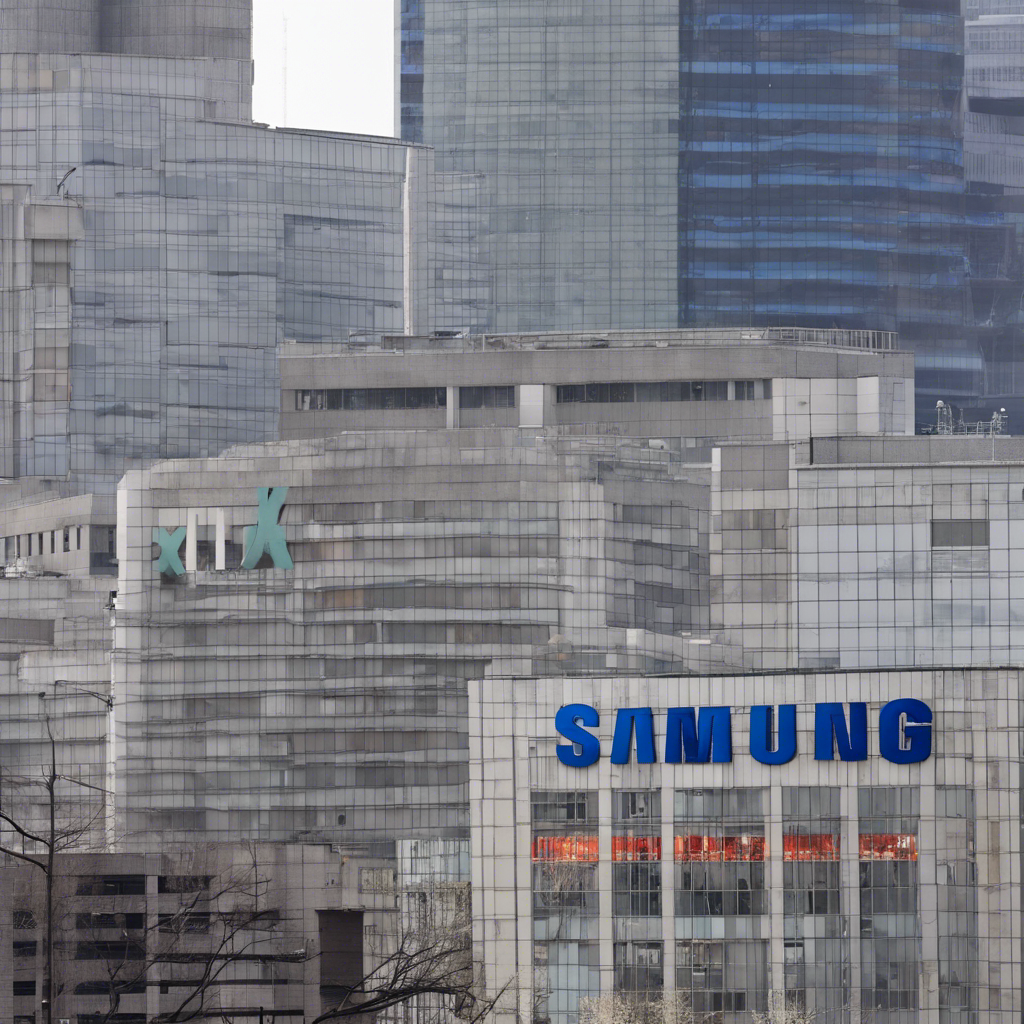Samsung’s Fourth-Quarter Profit Falls Short, Raises Concerns for Earnings Recovery

The world’s largest electronics manufacturer, Samsung Electronics, anticipates a 35% decline in operating profit for the fourth quarter, raising doubts about the company’s expected earnings recovery.
Samsung Electronics, renowned for its memory chips, smartphones, and televisions, has announced a disappointing fourth-quarter operating profit forecast. The projected 35% decline from the previous year’s figures has caught market analysts off guard and cast a shadow over hopes of a strong earnings recovery, particularly in its semiconductor business. This unexpected setback raises concerns about the overall health of the global electronics market and the company’s ability to regain its momentum.
Market Expectations Defied
Samsung Electronics’ preliminary earnings forecast for the October-December quarter reveals a projected operating profit of 2.800 trillion won ($2.13 billion). This falls significantly short of the 4.310 trillion won recorded during the same period in the previous year. The disappointing figures have caught industry experts and investors by surprise, as market expectations were much higher. The weaker-than-anticipated performance is attributed to various factors, including a decline in demand for memory chips and increased competition in the smartphone market.
Semiconductor Business Stumbles
Samsung’s semiconductor business, which has been a key driver of its profitability in recent years, is facing headwinds. The global demand for memory chips has weakened, resulting in a decline in prices. This, coupled with intensifying competition from other chip manufacturers, has put pressure on Samsung’s market share and profitability. The company’s reliance on the semiconductor sector has made it vulnerable to market fluctuations, and the current downturn is a cause for concern.
Smartphone Market Challenges
In addition to the semiconductor business, Samsung’s smartphone division is also facing challenges. The company has been grappling with increasing competition from Chinese rivals such as Huawei and Xiaomi, who offer high-quality devices at competitive prices. This has impacted Samsung’s market share and profitability in key regions. The lack of significant technological advancements in recent smartphone models has also contributed to a decline in consumer demand. As a result, Samsung’s smartphone business is struggling to regain its former dominance in the market.
Global Economic Uncertainty
Samsung’s disappointing performance is also indicative of broader economic challenges. The ongoing trade tensions between the United States and China, coupled with a slowdown in global economic growth, have created an uncertain business environment. This has led to reduced consumer spending and delayed investments in technology, impacting Samsung’s overall sales and profitability. The company’s reliance on international markets makes it particularly susceptible to these external factors.
Future Outlook and Recovery Strategies
Despite the current challenges, Samsung Electronics remains optimistic about its long-term prospects. The company is investing heavily in research and development to enhance its technological capabilities and diversify its product portfolio. Samsung is also exploring new growth opportunities in emerging markets and expanding its presence in sectors such as artificial intelligence and 5G technology. Additionally, the company aims to strengthen its customer relationships and improve its marketing strategies to regain market share in the smartphone segment.
Conclusion:
Samsung Electronics’ lower-than-expected fourth-quarter operating profit has raised concerns about the company’s ability to recover from the current downturn. The decline in the semiconductor business and increased competition in the smartphone market have significantly impacted the company’s profitability. Furthermore, global economic uncertainties and trade tensions have further contributed to the challenging business environment. However, Samsung remains committed to innovation and diversification, focusing on emerging technologies and markets to regain its competitive edge. The coming quarters will be crucial for Samsung as it seeks to navigate through these challenges and regain its position as a global leader in the electronics industry.

